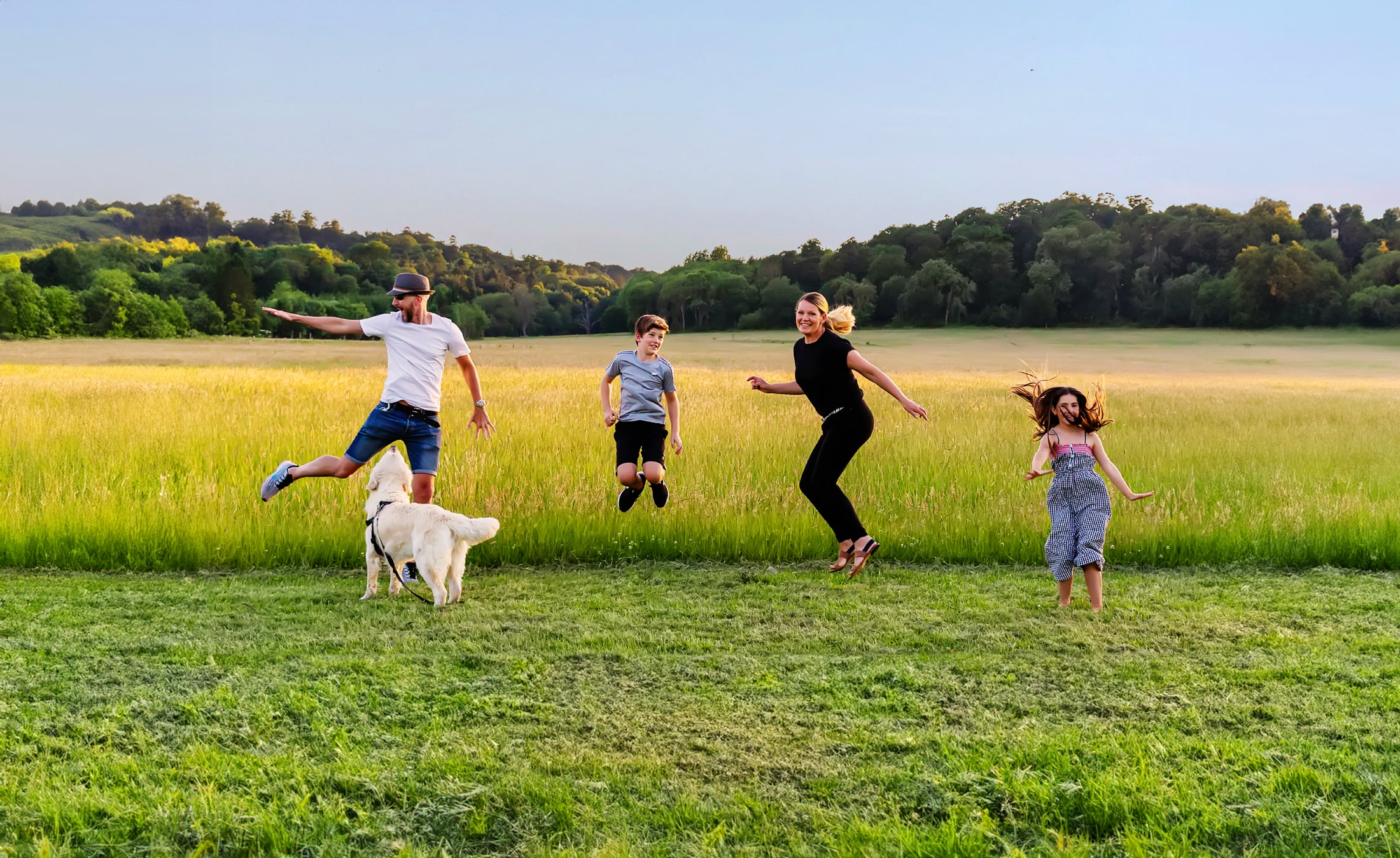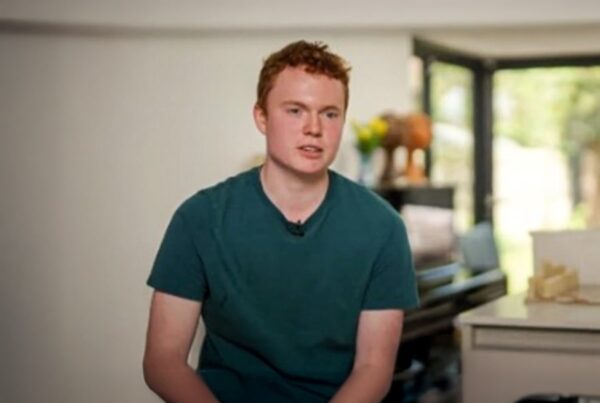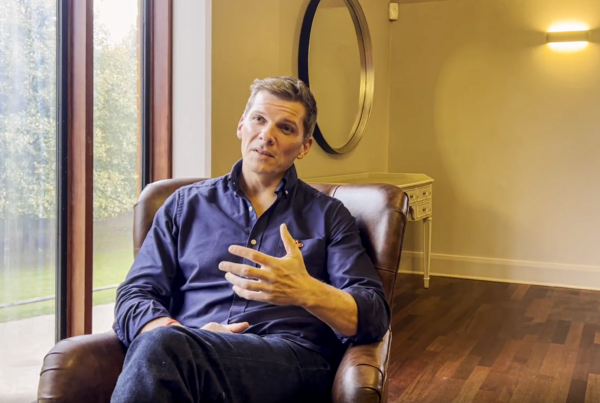Few things are harder for a child than the death of a parent…
That’s what happened to Sam, whose Dad died from cancer in 1984. Then in March 2020, her partner Matt – also father to their two children Josh and Poppy – was diagnosed with an incurable malignant brain tumour. The children were just seven and eight.
“Years ago, people didn’t talk about it. My sisters and I didn’t go to my Dad’s funeral, because that was the guidance my Mum was given,” Sam recalls.
“But that’s really different to how we dealt with it with Josh and Poppy. Having lost my Dad, it made it easier to put myself in their shoes.”
PRE-BEREAVEMENT SUPPORT
When Matt suddenly lost peripheral vision in one eye, doctors initially told him he’d had a stroke. But his vision problems persisted and eventually, an MRI scan revealed lesions on his brain, which led to his cancer diagnosis. Curative treatment or surgery wasn’t possible, so the couple had to break the devastating news to their children that Matt was going to die.
So, Sam contacted the Foundation and was put in touch with someone who could provide the expert support and advice she and Matt needed on how to talk to their children about death and dying.
“We did everything together and we were really well prepared, even down to the words we used – we had to use the words ‘death’ and ‘cancer’,” Sam explains. “When Matt died, the children said to me ‘I always knew what was going to happen’ and I think that’s why they’ve fared so well.”
Resources like the ‘This is about me and you’ booklet, in which parents and children can write about their experiences to aid communication about grief, loss and death,
”My initial feelings were ‘When do we tell them, how do we tell them, and what do we tell them?’ It took Matt some persuading to tell the kids. He was quite taken aback by using the word ‘cancer’
SamMother of Josh & Poppy
“My initial feelings were ‘When do we tell them, how do we tell them, and what do we tell them?’ It took Matt some persuading to tell the kids. He was quite taken aback by using the word ‘cancer’.”
Sam did some research and came across several organisations that help children through bereavement.
But, as Sam explains, they tend to offer support after a death and not leading up to it. There was very little information about how to talk to children about death and dying.
“The advice I was given was ‘You know your children and what will work for them’, but actually, I really didn’t know what would work for them,” Sam comments.
TALKING TO CHILDREN ABOUT DYING
Around the same time, Sam heard about the Ruth Strauss Foundation. “It was on the radio or a podcast, and I heard Andrew Strauss say he’d lost his wife, Ruth, and that her wishes were to set up a charity to help families like ours,” she says. “And I thought ‘Actually, that’s exactly what we need’.
SUPPORT THROUGH A CANCER DIAGNOSIS AND BEYOND
As well as providing professional support in the pre-bereavement stage, the Ruth Strauss Foundation has helped the family to feel part of a community since Matt died.
In 2023, they were guests at the charity’s RedForRuth day, the flagship annual event that brings together cricket fans, supporters and families. It’s a day of sporting fun aimed at raising money so the Ruth Strauss Foundation can continue its work supporting families like Sam’s.
The event is also vital in boosting the Foundation’s profile, so that more people can access its services.
Sam urges other families who are dealing with the same experiences to contact the Foundation. “As parents, we’re not experts in this field so it’s important to speak to a professional who is.”
“It’s not going to change what happens to that parent, but it will change what happens to the children.”
Frequently Asked Questions
What is the Ruth Strauss Foundation?
The Ruth Strauss Foundation focuses on supporting parents with any incurable cancer to prepare their children. It also focuses on funding research aimed at improving outcomes for people affected by non-smoking lung cancers. The Foundation offers resources, guidance, and support to help families navigate the emotional and practical challenges associated with incurable cancer.
How can the Ruth Strauss Foundation help families deal with incurable cancer?
The Foundation offers a range of support services, including counselling, peer support groups, and resources for families facing anticipatory grief. We provide guidance on how to navigate difficult conversations with your children, manage emotional challenges, and access practical support. For more information and support, please visit our Family Support Services.
Why is anticipatory grief support important for families?
Anticipatory grief support is crucial because it helps families prepare emotionally and mentally for the loss of a loved one. Additionally, it provides a space for families to process emotions, plan ahead, and create meaningful memories together.
How do I tell my children that their mum or dad has incurable cancer?
Telling your children about a parent’s incurable cancer requires honesty and sensitivity. Use age-appropriate language, be clear about the situation, and reassure them of your support. It’s important to encourage questions and express your feelings openly. For personalised guidance and resources, reach out to the Ruth Strauss Foundation for support here.



